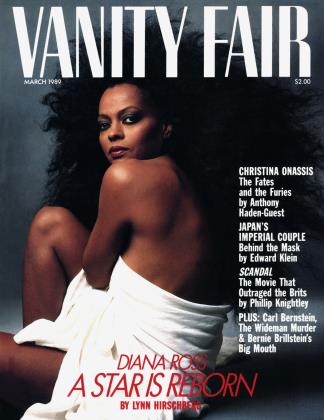Sign In to Your Account
Subscribers have complete access to the archive.
Sign In Not a Subscriber?Join NowThe dark voyage of Christina Onassis was a Greek tragedy which sprang from her father's taunting of the Gods. ANTHONY HADEN-GUEST tracks the Fates and the Furies that drew her to death in Buenos Aires
March 1989 Anthony Haden-GuestThe dark voyage of Christina Onassis was a Greek tragedy which sprang from her father's taunting of the Gods. ANTHONY HADEN-GUEST tracks the Fates and the Furies that drew her to death in Buenos Aires
March 1989 Anthony Haden-Guest View Full Issue
View Full Issue






Subscribers have complete access to the archive.
Sign In Not a Subscriber?Join Now